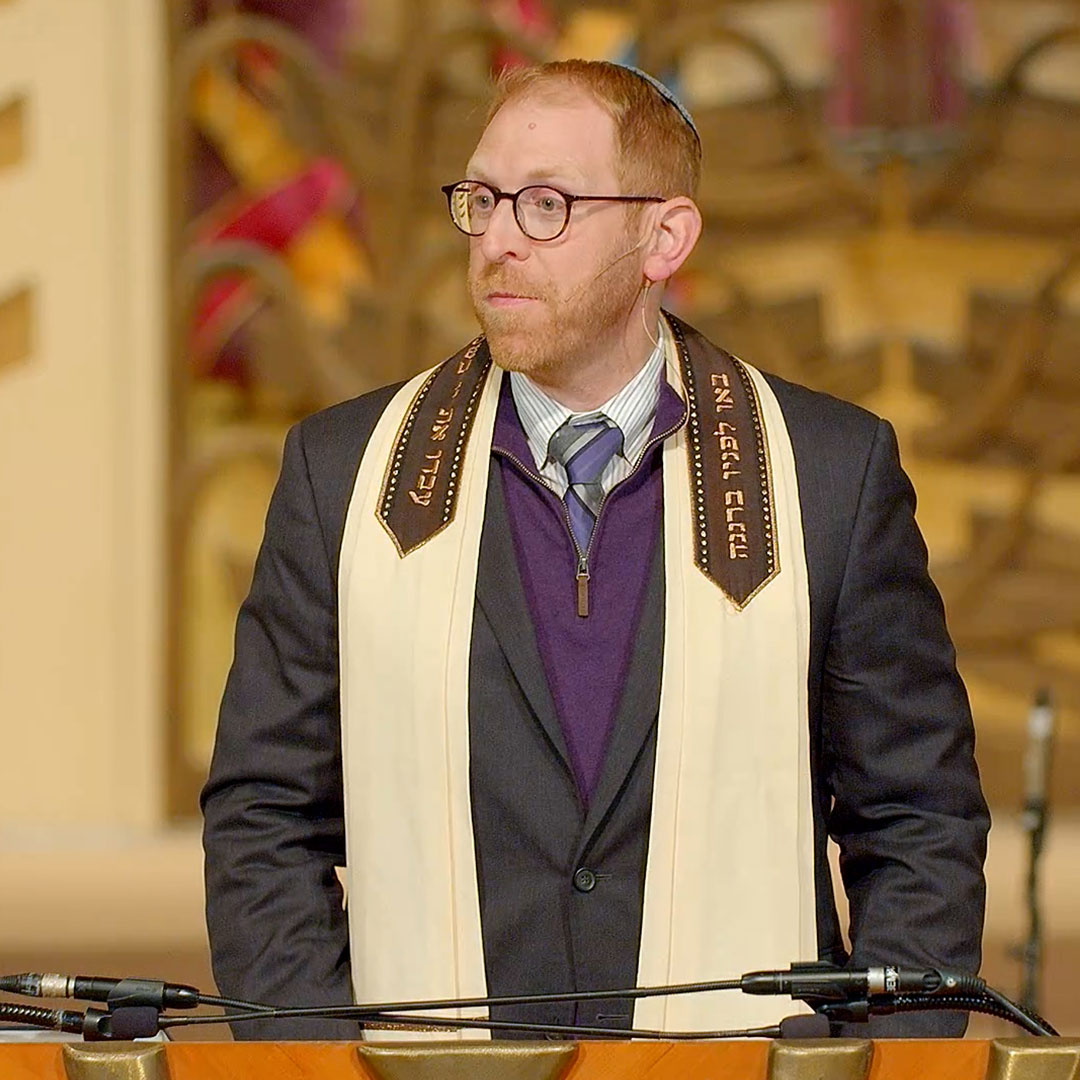
Sanctuaries & Connections
Rabbi Josh Knobel
February 24, 2023 | 3 Adar, 5783
Watch video of Rabbi Josh Knobel’s sermon and all Shabbat sermons HERE.
David was the quintessential go-getter. Born to a family of doctors, he overachieved throughout his childhood—straight A’s, captain of his soccer team, editor of his high school newspaper. It was no surprise when he was accepted to Harvard, nor was it altogether surprising when David, like many of his peers in the early 2000s, eschewed law school and medical school to start his own business. After 10 years of patience and diligence, David had it all—a beautiful home, an adoring spouse, three flourishing children, and a $50 million dollar check in hand for the company he had created back in 2002.
Having spent nearly two weeks negotiating the sale of his company, verifying the funds, and updating his will and trusts, David checked into the Whitby Hotel for a well-deserved break. There, he spent the next 48 hours trying to figure out how he could commit suicide while ensuring his family would still receive his life insurance benefit.
What happened? What brought the man who had it all so close to leaving it all behind?
As it turns out, David didn’thave it all. Something was missing from this life defined by success after success, accolade upon accolade, achievement upon achievement upon achievement.
For as David discovered, though achievements may bring us pride and even satisfaction, they fill our lives neither with happiness nor meaning. Alone, they can feed our self-confidence, but they cannot nurture our souls.
For that, we require connection. Connection to the world, connection to one another, connection to the Source of connection … these connections fill our lives with enduring meaning and joy. The 20th century Jewish philosopher Martin Buber calls these connections “I-Thou relationships,” suggesting that we create spiritual connections when we enter into genuine relationships, characterized by curiosity, compassion, and transparency. When we open ourselves completely to the possibility of discovery and—in turn—to being discovered, we create connection.
However, when we enter into relationship through need or desire, when we seek out God or one another in order to fulfill a purpose, then we are using someone, and our relationship becomes what Buber calls an “I-It relationship,” because we have effectively transformed someone into an object. These, too, are important relationships. Sometimes, we need our children to clean their room. Sometimes, we need our parents to take better care of their health. Sometimes, we need God to answer our prayers. And that’s ok. But when we use someone else to meet our needs or achieve our goals, we’re not creating connection.
And as David sat in his room at the Whitby, he recognized that his was a life of goals conquered. He had invested his entire being into the pursuit of a dream. And now that his dream was fulfilled, he felt empty inside. He had no connections.
So, how does one begin to create connection? For those of us who have spent our lives feeling connected, that may seem like a silly question, but for David, the question was not only substantive; it was the most important question of his life.
This week’s Torah portion, T’rumah, provides something of an answer. God tells Moses to ask the Israelites for gifts—gold, silver, copper, linen, animal skins, and more—to fashion a mikdash, a sanctuary, that God might dwell among them (Exodus 25:2-9). The sages, uncomfortable with the idea that God requires a sanctuary in order to dwell among us, suggest that the building is not nearly as important as the gifts themselves. Only by giving up something precious do the Israelites make it possible for God’s presence to dwell among them.
For our Biblical ancestors, these precious gifts included some donation from their accumulated wealth, wealth which otherwise could be used to obtain a home, food, clothing, safety, even a match for their children. Investing this precious resource into their spiritual life, without any expectation of return, is what made their relationship with God possible.
And though we may often appear preoccupied by our pursuit of wealth in 21st century America, the currency of our spiritual journey cannot be measured in gold or silver or jewels. No, the gift we must pledge if we wish to enter into relationship with the Divine is the scarcest, most precious resource at our disposal— our time.
If we want connection with our children, we must spend time with our children. If we want connection with our community, we must spend time with our community. If we want connection with the natural world, we must spend time with nature. If we want connection with God, we must spend time with God. Not searching for something. Not looking for something. Not waiting for something. We must give our time willingly, without expectation of return on our investment.
And when we spend that time—when we pledge our most precious gift—only then may the moments of our lives become sanctuaries, with God sitting right beside us as we hold our loved ones’ hands, as we listen with anticipation to their stories, as we study and discover and pray together, as we fill our lives with meaning and connection.
Thankfully, David made it home from the Whitby. He didn’t yet have a plan for moving forward, but he knew that his salvation lay in trusting his wife and children. And so, he shared his sense of emptiness with them. And then he listened. And he never stopped listening. And with enough listening, he discovered how to connect, first with his loved ones, then with the world around him, with something greater. It isn’t perfect. After all, you can’t rebuild 10 years of absence overnight, but David’s alive, and he’s connecting.
